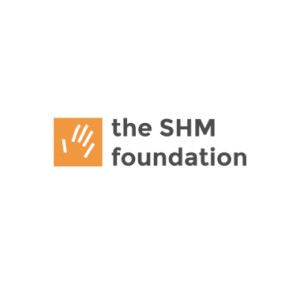Data sharing can be considered as an alternative method of Corporate Philanthropy.
The benefit of data sharing is evident in satellite imagery whereby it enables crisis response department as well as relevant UN departments to have access to the captured visuals so that damage can be assessed and the necessary relief effects can be coordinated.
The article featured by the Harvard Business review blog offers a step-by-step guide for organizations that wants to adopt data philanthropy.
Here at John Snow Labs, we are glad to read that the final step has to do with planning to publish researchers’ results without any obstruction (if the data is meant for researchers). The researchers may also be required to share their results with the world under Open Access terms. This indicates a sign of progress in the sharing economy.
Although this may be a new means of philanthropy, it is, however, an effective approach for data-rich organizations. Thus, if your organization is planning to improve its social impact, provide access to data.
Benefits of Sharing Private Data
Big data has become one of the most crucial assets of the century. Public sectors and social organizations may not be able to assess the same amount, quality or frequency of data. This challenge gave birth to data philanthropy.
The information revolution has recently helped the private sector to develop in the aggregation, analysis and applications of data. Although there are big benefits in the real-time utilization of data in the private sector, there are also huge benefits in the application of real-time data to provide effective solutions to social challenges.
Data philanthropy is useful to academia since it eliminates the barrier to assessing data – a challenge which lots of researchers are faced with. This makes the analysis and production of knowledge, from the readily available data, easier and faster. Without data philanthropy, it simply means that only researchers that can access certain data can analyze and produce knowledge.
For instance, Twitter sells access to diverse real-time APIs to marketing networks. The price, however, is not pocket-friendly. Data Grants was created by Twitter to aid the pursuit of knowledge by providing access to parts of their real-time global trove to some groups of researchers. Such program has created an opportunity for academics as well as other researchers to apply and gain access to huge data downloads that will improve their research.
Private data can be donated to improve humanitarian response, urban planning and academia.
Also, data philanthropy enables companies to give back to create a meaningful impact. This reflects the core competencies of businesses and preserves value for shareholders.
Michael E. Porter and Mark R. Kramer discussed, in their book “The competitive Advantage of Corporate Philanthropy”, the practice of “strategic philanthropy.” They explained how a company can derive value from socially responsible programs simply because this form of philanthropy is capable of improving the competitive business environment that the business operates.
Companies that are involved in data philanthropy can contribute to the well-being of the public by working directly with public firms, institutions as well as social organizations to use their expertise and information assets to take on shared challenges. This will go a long way in exceeding the social impact attained per dollar spent through traditional philanthropy.
Steps To Take When Considering Data Philanthropy
Highlighted below are the steps that can be taken by companies considering data philanthropy:
- Storage of information produced, collected and analyzed by the company. This will help in considering the data that will be easy to share and those that will require long-term effort.
- Decide the beneficiaries of the information. The most appropriate beneficiaries are those that do not have access to such information.
- Decide those that are prone to harm through the release of the data. Ensure to receive the consents of those concerned with the datasets.
- Define what formats and kind of information are valuable to the relevant public agencies and nonprofit organizations.
- Decide how the distribution of data to partners will be handled.
- Consider your needs based on privacy and anonymity. Eliminate any personal-related information from the data.
- If the data is meant for researchers, allow researchers to publish their findings without any hindrance. You may ask them to share their results under Open Access
Conclusion
Data is a powerful means of acquiring a competitive edge in today’s business environment. This, however, does not mean that sharing data cannot be beneficial to a firm and assist social and civic groups. Thus, whenever your organization is brainstorming about ways to improve its social impact, provide access to data.
To learn more about the future of corporate philanthropy in data sharing, consider how innovations like Generative AI in Healthcare and a Healthcare Chatbot can facilitate collaboration and enhance access to vital health information, ultimately improving community health outcomes and fostering a culture of social responsibility.





























